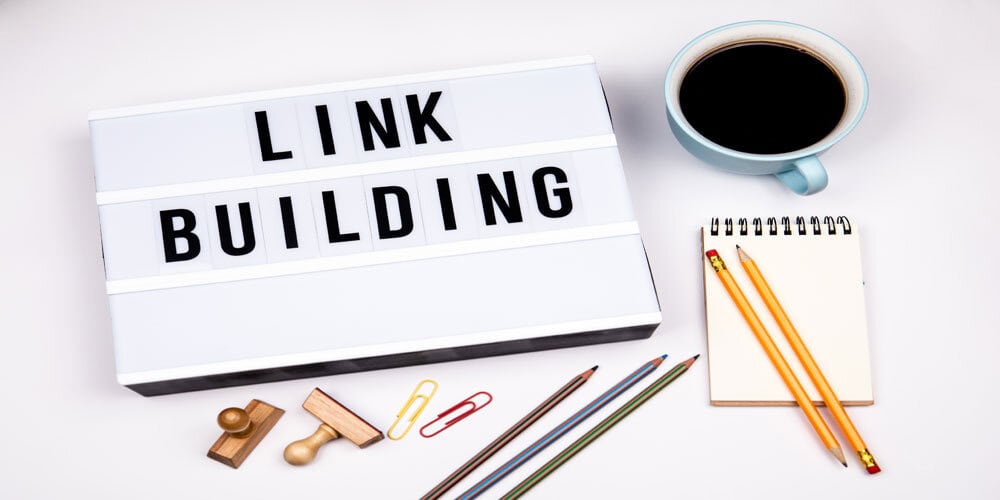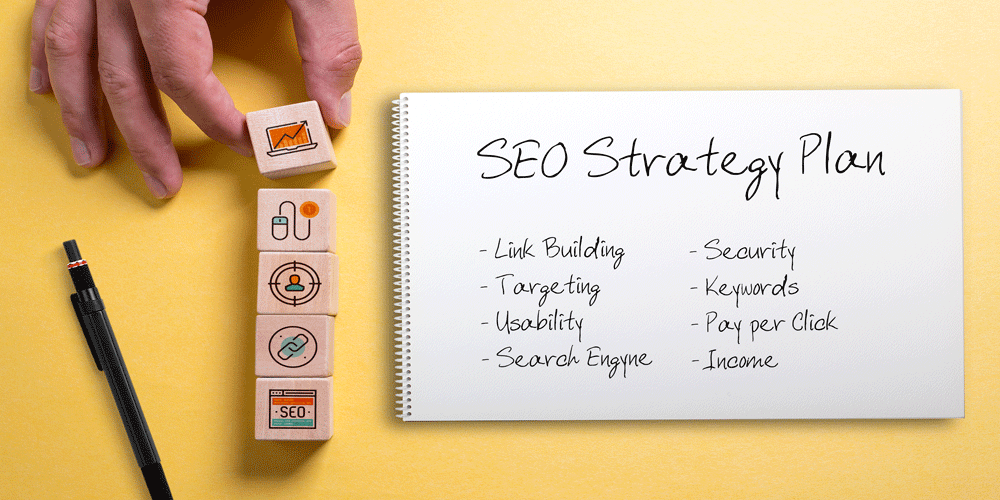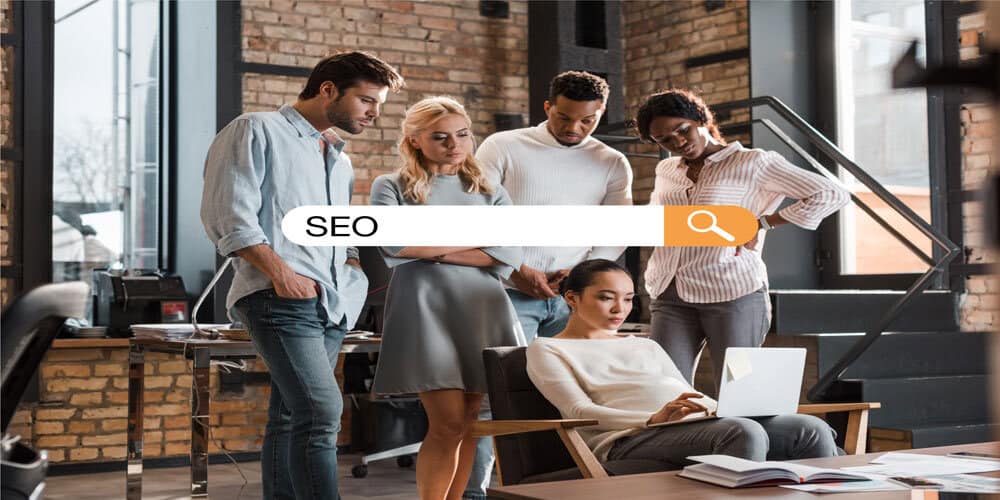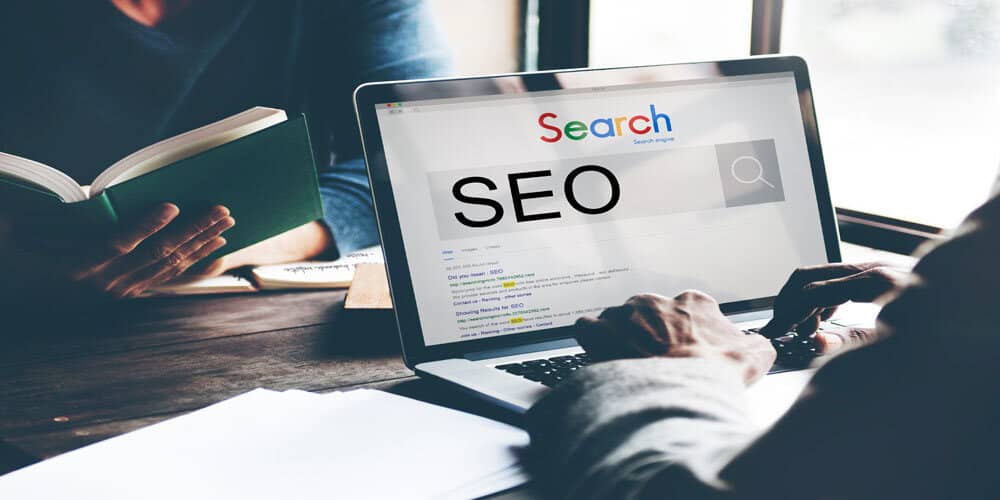Outgoing links: Are they beneficial for your site or not?

When it comes to outgoing links, there is no easy answer. On the one hand, links can be an important way to signal to search engines that your site is relevant and authoritative. You can improve your search engine ranking by linking to high-quality websites and getting more traffic. On the other hand, outgoing links can also be a source of spam and low-quality content. If you link to sites with little or no original content, it could reflect poorly on your own site. SEO ranking can be improved There are a multitude of factors that can affect your SEO ranking, from the content of your website to the structure of your URLs. However, one often-overlooked factor is outgoing links. When your website links to another site, it sends a signal to search engines that your site is relevant and trustworthy. As a result, outgoing links can help to improve your SEO ranking. Of course, it’s important to link only to high-quality websites; otherwise, you could damage your ranking. But if you choose your links carefully, they can be a valuable asset in your SEO strategy. Providing information to visitors which is beneficial Your goal is to provide your visitors with valuable information that will help them in some way. One way to do this is to include outgoing links to other resources. You can provide your visitors with more information on the topic by including links to relevant websites. Not only does this help to improve their understanding of the topic, but it also demonstrates that you are knowledgeable about the subject. As a result, they are likely to trust your opinion and come back to your blog for more useful information in the future. If you’re looking for a way to provide more value to your visitors, consider adding outgoing links to your next blog post. Building relationships with other websites Outgoing links are a great way to build relationships with other websites. By linking to another website, you are effectively giving them a vote of confidence. This not only helps to improve your own website’s ranking in search engines, but it also helps to build trust and goodwill with other web admins. In addition, outgoing links can also help to increase traffic to your website. When visitors click on a link to another website, they will be taken directly to that site. If the site is relevant and exciting, there is a good chance that the visitor will spend some time browsing around. As a result, outgoing links can provide both an SEO boost and increase web traffic. Using outgoing links for advertising In some cases, outgoing links can be used for advertising purposes. If you have a business website, consider linking to other websites that sell products or services that are related to your own. For example, if you sell health supplements, you could link to a website that sells fitness equipment. However, you should only use outgoing links for advertising if you are sure that the linked site is relevant to your own business and if you have obtained permission from the site owner. How to choose the correct outgoing links for your business If you decide to include outgoing links on your website, it is important to choose the right ones for your business. It would be best if you only linked to websites that you trust and that you think would be of interest to your visitors. You should also avoid linking to sites that are in violation of Google’s terms of service. If you are still determining whether or not a website is appropriate to link to, you can always contact the site owner and ask for permission. Finally, it would be best if you also tried to use outgoing links sparingly. Too many outgoing links can dilute the link juice that your website receives, and it can also make your website look like a link farm. Outgoing links can be beneficial for your site Overall, outgoing links can be beneficial for your site. They can provide more information to your visitors, help you build relationships with other websites, and improve the overall user experience on your website. However, there are also some potential risks associated with outgoing links, and it is important to choose the right ones for your business. If you decide to use outgoing links on your website, you should use them sparingly and only link to websites that you trust. In conclusion, there is much debate among web admins and SEO experts about the benefits of outgoing links. Outgoing links are essential for good SEO, as they help to improve a website’s authority and credibility. However, others argue that outgoing links can be harmful to a website’s search engine ranking, as they can redirect valuable link juice away from the site. Ultimately, the decision of whether or not to include outgoing links on a website depends on the individual website and its goals. As a general rule, it is always best to err on the side of caution and only include outgoing links to high-quality websites. Including outgoing links to low-quality sites can harm your site’s reputation and cause you to lose valuable traffic. Want to read more on inbound links?
How To Handle Negative SEO Attacks

Google’s John Mueller offers advice on what to do if you’re the target of a negative SEO attack. He shares an easy way to deal with negative SEO attacks, such as competitors building spammy links to your domain. Recently addressing this topic in reply to a thread on Reddit. In the r/SEO forum, an individual believes they’re the target of a negative SEO campaign and is looking for advice. Mueller’s advice is to ignore the problem. That’s it; ignore it. Here’s his full reply: “I’d just ignore them. Think of it this way, if your competitors are competent, they won’t build links for you. If your competitors are incompetent, the links won’t have any effect.” Mueller’s response is direct and to the point. A competitor competent enough to build links Google will recognize probably won’t waste their time with negative SEO attacks. Google ignores many links, such as low-quality links a bad actor might build en masse in an attempt to damage a competitor’s rankings. Therefore, website owners and SEOs should ignore said attacks since Google won’t count the links against a site’s rankings. This topic comes up now and then, though with the number of search updates rolled out in recent years, it’s worth revisiting Google’s guidance regarding negative SEO. Mueller’s advice in the Reddit thread is consistent with the advice he provided in the past. Additionally, he’s previously stated that you shouldn’t rush to use the disavow tool if you’re concerned about negative SEO. Google ignores obviously spammy links, so there’s no need to disavow them. That tool is more for recovering from manual action penalties. Most SEO professionals don’t use the disavow tool on spammy links, according to a poll on Twitter earlier this year. There’s considerable confidence in Google to deal with them automatically. However, there’s nothing wrong with using the disavow tool if it makes you feel more comfortable.
Strength Of Backlinks Ranking Factor Will Drop

Google Search Advocate John Mueller predicts the strength of backlinks as a ranking factor will drop over time. During a live session at the recent Brighton SEO event, Google Search Advocate John Mueller makes a prediction about the future of backlinks. Mueller, joined by fellow Googler Lizzi Sassman and guest Myriam Jessier, fields several questions during a live recording of the Search Off The Record podcast. Google Interested in Backlinks Since it’s a podcast, the questions are addressed as a group discussion, as the hosts answer pre-selected questions rather than interacting with the live audience. Together, the hosts answer a question about how Google penalizes backlinks, which asks: “As an SEO, we are interested in backlinks. However, actively working on backlinks often becomes a gray area in terms of link schemes. What are Google’s main criteria for penalizing backlinks?” After some banter between the hosts, Mueller takes a direction with his answer that’s a slight departure from the original question. Google representatives are often careful when answering questions regarding ranking and penalty criteria. Generally, Google discourages any form of unnatural link building. Giving away too many details about penalties could encourage “grey hat” behavior or walking a careful line between what’s acceptable and what isn’t. Instead of speaking about penalties, Mueller discusses the backlinks ranking signal in general and why it may become less critical to SEO professionals in the future. Google’s John Mueller On The Backlinks Ranking Signal As Google becomes more adept at understanding how content fits in with the rest of the web, Mueller suggests Google’s algorithm won’t have to rely so much on inbound links. Mueller says: “Well, it’s something where I imagine, over time, the weight on the links at some point will drop off a little bit as we can figure out a little bit better how the content fits in within the context of the whole web.” Perhaps this is Mueller’s way of saying penalties aren’t worth worrying about because backlinks won’t be as valuable to acquire in the future. However, suggesting backlinks are only helpful for understanding content disregards all the other information they communicate. A backlink profile can tell you so much more about a website, such as an extent to which it’s trusted by others, who it’s trusted by, and how authoritative the site is in its particular niche. Is Google capable of determining all that from the on-page content alone? Mueller doesn’t speak to the authority aspect of inbound links, though he does say they’ll continue to be helpful to Google for content discovery. Mueller continues: “And to some extent, links will always be something that we care about because we have to find pages somehow. It’s like how do you find a page on the web without some reference to it?” But my guess is over time, it won’t be such a big factor as sometimes it is today. I think already, that’s something that’s been changing quite a bit.” Source: Search Engine Journal Internal Linking & its Impact on SEO
Google Has Released the September 2022 Core Update

Google announced on 12 Sep that it had released the September 2022 core update, the update started rolling out on 12 September and will take around two weeks to complete. As is now usual, it also updated its search ranking update page, adding that the rollout could take two weeks to complete. We can expect this page to be updated again once the rollout is complete. The last core update was in May. It seems there’s no letup for SEOs. This update comes hot on the heels of the Helpful Content update, which was released on 25 August and only completed last week. The Helpful Comment update was expected to be a big deal and two weeks in, the SEO community was surprised at the lack of volatility being seen in the rankings. However, it seems this picked up at the very end. Looking at the rankings over the rollout period of 25 Aug to 9 Sep, the highest level of volatility was in the last two days, 8 and 9 September. Source: RankRanger What does this mean? Google hasn’t said anything about the timings here, and why the core update is following on so closely behind the Helpful Content update. So we don’t have definitive information. However, Helpful Content is part of the core and it may be that there’s something that needs to be ‘activated’ by updating the core. Google’s Danny Sullivan tweeted last week that the effect of the Helpful Content update might be seen more after a core update. Source: Twitter What should you do? When a broad core update is released, it’s advisable to keep a close eye on your rankings and analytics to see if there’s been any impact on your site. Core updates generally take a couple of weeks to roll out and impacts may be seen at any point during this period. Rankings may go up and down for a couple of weeks before settling. If your site is hit, there may not be any specific fix you need to make. Google’s advice is to review their guidelines to see if your site violates any of the guidance. There is also a list of useful questions you should consider if your site is impacted.
Understanding Search Intent

Modern search algorithms are highly complex, incorporating artificial intelligence[1], the machinations of which are known only to internal employees[1]. But you have control over search intent, which plays a crucial role in helping create content to laser target customers[2]: • What is Search Intent? • Search Intent and Search Engines • Why is Search Intent Important? • Different Types of Search Intent • Search Intent and SEO • Effective Use of Search Intent • Getting Help with Search Intent and SEO You can use search intent to assess where a prospective client is in the conversion funnel[2] based on a query. For instance, they may begin with a general informational query, which turns into a transaction query based on what they find. Knowing the intent can help convert sales. What is Search Intent? At its core, search intent is the understanding behind a specific query by a search engine user, i.e. why a user has decided to use a given term. By understanding the motivation behind a search query, you have the opportunity to direct a user through the funnel to a potential sale. You can capitalise on search intent with Search Engine Optimization to manipulate results. This method is highly effective. Search engines like Google and Bing interpret search intent and display relevant data on the Search Engine Results Page to a user, potentially boosting traffic[3]. Search Intent and Search Engines Search engines use specific algorithms to display relevant results to a user by analysing the intent of the search. Therefore, the results shown in SERPs often reflect each page’s SEO score in relation to the query. For example, if you search “dentists near me”, Google knows you intend to purchase a commercial service based on location. Therefore, local SEO information in relation to your geographic data is used to present the most relevant dental practices. This will be sorted by proximity and rich data such as user review scores[4]. SEO aims to use such data. Why is Search Intent Important? Search intent is necessary concerning online interaction. Linking users and with the most relevant data ensures you help someone find what they are looking for. And search engines award quality design and SEO implementation that helps them accomplish this with higher SERPs rankings. Further, a higher ranking helps build trust from a user perspective. Not least by demonstrating you are an authority in your field[5] that can provide information based on their query. For example, answering questions, providing products and understanding your niche. Different Types of Search Intent When developing a solid SEO and digital marketing strategy, it’s crucial that you understand the different types of search intent. Understanding these can help build a foundation from which you can launch a new campaign or drive general visitors to your site. These are as follows[6]: • Transactional: a search query that indicates someone is looking to purchase a product. • Navigational: information indicating a user wishes to find a specific website. • Informational: usually a question when a user is looking for detailed information. Understanding different types of intent are critical for search engines to relay the most relevant information when you search for something. You can help them by using correct SEO techniques. And users will come to rely on one engine alone based on the quality of results. Search Intent and SEO SEO alone can help drive masses of traffic towards your site based on your content, location information, quality of crawl code and authoritative backlinks. Of course, there’s much more to SEO than this, and it’s challenging to master. Yet search intent needs to become a part of your SEO plan in order to succeed. In particular, effective keyphrases with a high search volume and low competition. The more a phrase is searched for and clicked on, the higher it will appear in SERPs. So identifying intentional search queries around your service becomes very important. Effective Use of Search Intent You can attract more visitors from a marketing perspective with the proper use of search intent and SEO. However, the key is to provide relevant results to connecting queries rather than trying to maximise traffic. In other words, quality over quantity. And this is a crucial part of any marketing strategy because relevant and interested parties will stay on your site longer[7] and are more likely to use your services. These will help boost your SERPs with a lower bounce rate and a higher sales conversion based on behaviour and compelling Call to Action. Getting Help with Search Intent and SEO Understanding SEO and search intent is an essential part of online marketing. Yet it’s a skill that takes time to master and even more to implement correctly. As a business owner or site manager, you may not have the time to study SEO while running a company. Fortunately, digital marketing agencies like Direct Submit employ cutting-edge technology and employees skilled in online marketing strategies. Working with you and your site, DMAs offer a complete understanding of existing and emerging online trends and search technology for your business. References 1. Marketing Artificial Intelligence Institute. AI in Search Engines: Everything You Need to Know. https://www.marketingaiinstitute.com/blog/how-search-engines-use-artificial-intelligence 2. Semrush. What Is Search Intent? A Complete Guide. https://www.semrush.com/blog/how-to-use-search-intent-for-your-business/ 3. Ahrefs. What are SERPs? Search Engine Results Pages Explained. https://ahrefs.com/blog/serps 4. Spyfu. What is Search Intent and Why Does it Matter https://www.spyfu.com/blog/what-is-search-intent/#:~:text=Commercial%20investigation%20searches,make%20purchase%20decisions 5. WebFX.com. Why search intent matters for SEO. https://www.webfx.com/seo/learn/why-search-intent-matters-to-seo/#:~:text=Matching%20user%20search%20intent%20helps%20you%20build%20your%20business%20as,business%2C%20products%2C%20and%20industry. 6. TextBroker.com. Types of searches: transactional, navigational, informational. https://www.textbroker.com/types-searches-transactional-navigational-informational 7. Forbes. How To Effectively Use Search Intent In Your Content Marketinghttps://www.forbes.com/sites/forbescommunicationscouncil/2020/08/24/how-to-effectively-use-search-intent-in-your- content-marketing/?sh=2197299d41db
Commonly Held Myths Affecting SEO

Search engine optimisation can be an incredibly powerful tool for helping to increase your website’s visibility in search engines, which can translate into more traffic, leads, and sales. But with so much misinformation out there, it can be hard to know what you actually need to do to get the most from your efforts. Here we try to dispel some commonly held myths affecting SEO that we often face when thinking about optimisation and SEO. Myth 1: SEO is one-time task and works straight away. One of the biggest myths about SEO is that it’s a one-time task. You can’t just do it once and then forget about it. SEO is an ongoing process that you need to keep up with in order to maintain your rankings in the search engines. Just taking a shortcut can cause you worry and trouble. Due to the number of necessary elements to implement, the effects of optimisation are visible only after a few months, and even later, they should be monitored and analysed. Myth 2: SEO is expensive. A lot of people believe that SEO is expensive and that it’s only for big businesses with deep pockets. This simply isn’t true! There are plenty of affordable SEO services out there that can help your website rank higher in SERPs. Furthermore, the number one factor that determines if a site ranks well or not has nothing to do with the cost of an SEO service, but instead has everything to do with the quality and quantity of content on the site, its optimisation and ongoing marketing. Myth 3: Local SEO doesn’t matter. A lot of businesses make the mistake of thinking that SEO is only for national companies. But if you’re running a local business, you need to be investing in local SEO. In fact, local techniques can be even more important for small businesses. Did you know that around 86% of customers use search engines to discover local businesses, demonstrating the importance of connecting with these customers. Additionally, 1 in 3 customers, before going to a stationary premises, will visit the website to save their time. Also remember that apart from the everyday inhabitants, you can reach tourists and visitors this way. Myth 4: Keyword research isn’t important. Keyword research is one of the most important parts of SEO. Without keyword research, you’re essentially shooting in the dark and hoping that your target audience will find your content. It is the adaptation to the intentions of users that allows you to appear in the search engine. The more precise the intent of the user is, the higher you’re ranking. The ranking factors are broken down into two categories: on-page and off-page. On-page factors refer to what appears on a webpage including title tags, meta descriptions, URL structure, headings and links. All should be influenced by good keyword research. Myth 5: Content is all I need. A lot of people think that as long as they have great content, their website will rank high in search engine results pages. Unfortunately, that’s not always the case. In fact, if you want your website to rank higher, you need to focus on more than just great content. You also need to focus on things like marketing and making sure your website is optimised for search engines. If you do this, then it won’t matter how great your content is because your site won’t be found. Myth 6: Quantity over quality in link building strategy. If you’re only focused on building as many links as possible, you’re not going to see the results you want. It’s important to have a mix of high-quality and low-quality links, but the quality of your links is more important than the quantity. A few high-quality links are worth more than hundreds of low-quality links. Make sure that when you go for quantity in link building, it’s from sites that are relevant to your niche. Your goal should be to create content that attracts attention from reputable websites in your industry. Time to Move Ahead with Your SEO Don’t let these myths hold you back any longer – it’s time to get started on your SEO journey! Remember that the world of technology and the operation of search engines change very quickly. As a leading Digital Marketing and SEO Agency, we have an expert team available to help your business today and help you get to the first page of Google. We’ve helped loads of businesses across the North East and the UK improve their search ranking positions and we’d love to see if we can help you too.
Googlebot Crawls First 15MB of Content on Page

In an update to its Googlebot Help document, Google has specified that Googlebot will only crawl and index the first 15MB of an HTML file or supported text-based file. “Googlebot can crawl the first 15MB of an HTML file or supported text-based file. Any resources referenced in the HTML such as images, videos, CSS, and JavaScript are fetched separately. After the first 15MB of the file, Googlebot stops crawling and only considers the first 15MB of the file for indexing. The file size limit is applied on the uncompressed data. Other crawlers may have different limits.” The update caused some head scratching among SEOs. For example, would images count towards the size limit, meaning text below images which had reached the limit just be ignored? In response, Google’s John Mueller tweeted on 24 June to clarify that embedded resources or content with IMG tags would not count as part of the HTML file. John Mueller tweet read “It’s specific to the HTML file itself, like it’s written. Embedded resources / content pulled in with IMG tags is not a part of the HTML file.” John Mueller also confirmed that this is not a change, just official documentation of an already existing policy. “This is not a change, it’s just not previously been officially documented (folks have experimentally determined it too, eg https://icg.agency/blog/whats-the-maximum-file-size-google-can-index ). Feel free to ping us or submit feedback if you’re unsure about the docs!” So what is SEO best practice… Google has now put on the record what the crawl cut off is for Googlebot. 15MB is a large amount, however, so there’s no need for undue worry. It’s good practice (also editorially) to place important content at the top of the page to ensure it’s not missed, so Google can rank your page appropriately. It’s also a good idea to keep your web pages light. This is better both for users, who will just move on if your page takes too long to load, and for crawlers such as Googlebot. You can check your HTML page size with free tools such as sitechecker, and you can use the URL Inspection tool in Search Console to see which parts of the page Google renders and sees within the debugging tool. In light of the confusion caused by this documentation of the crawl limit, Google published a blog post clarifying the content the 15MB limit applies to. The post reiterates that, with the existing median size for an HTML file being 30KB, the overwhelming majority of users will not be affected by this crawl limit. Google added: “However, if you are the owner of an HTML page that’s over 15 MB, perhaps you could at least move some inline scripts and CSS dust to external files, pretty please.” Read full details in Google’s Search Central blog.
Google May 2022 Algorithm Update

Google released a broad core algorithm update on May 25, this year, called the May 2022 core update, which will take roughly two weeks to fully roll out. Core updates are designed to make search results more relevant for users. Though the update is launching today, it will take 1-2 weeks for this update to fully roll out. Google Algorithm Update Danny Sullivan, Google’s Public Liaison for Search, notes that changes to site performance in search results are to be expected. “Core updates are changes we make to improve Search overall and keep pace with the changing nature of the web. While nothing in a core update is specific to any particular site, these updates may produce some noticeable changes to how sites perform…” When a core update rolls out, Google is known for pointing to the same guidance it published in 2019. Nothing has changed there, as Google references the same document with respect to this update. To sum it up, Google’s general advice regarding core updates is as follows: >>> Expect widely noticeable effects, such as spikes or drops in search rankings. >>> Core updates are “broad” in the sense that they don’t target anything specific. Rather, they’re designed to improve Google’s systems overall. >>> Pages that drop in rankings aren’t being penalized; they’re being reassessed against other web content that has been published since the last update. >>> Focusing on providing the best possible content is the top recommended way to deal with the impact of a core algorithm update. >>> Broad core updates happen every few months. Sites might not recover from one update until the next one rolls out. >>> Improvements do not guarantee recovery. However, choosing not to implement any improvements will virtually guarantee no recovery. Noticeable Changes to Search Rankings It has been six months since the last Google core update, which rolled out in November 2021. Those who have been working hard on their site during that time may start to see some noticeable improvements to search rankings. On the other hand, those who have left their site sit idle may begin to see themselves outranked by sites with more relevant content. It’s too early to start assessing the impact, however, as this update will take a week or longer to roll out. Your rankings may fluctuate during that time, so don’t be alarmed if you notice changes right away. Google will confirm when the update is finished rolling out, then it will be time to start doing your analysis.
Types of Key Phrase Research

Fundamental phrase research is an essential aspect of SEO. Typically, people will do some basic research on popular phrases and use those for their websites. However, it’s not always the best idea to find keywords and put them into your website without any more thought than that. Here is an overview of several types of essential phrase research, including the main three, navigational, informational, and transactional searches. Navigational Navigational phrases refer to those that are used to find a specific web page. Informational Phrases Informational phrases refer to phrases that contain product or service information. This is the type of phrase a consumer would likely use while researching before making an online purchase. These phrases are often long-tail since people looking for specific information will type in longer queries. Transactional Transactional phrases refer to phrases that direct the user toward a specific action or conversion. For instance, terms like “call now” and “buy this product” is transactional because they explicitly tell users what to do next. As a result, the use of vital transactional phrases can lead to higher conversions and increased revenue for your business. Benefits of these Phrases The above phrases have the following benefits: • Helps with SEO rankings • Provides a better user experience for users to find what they are looking for • Increases conversion rates and increases ROI on marketing campaigns. There are several types of keyword phrases that you can use to optimise your website and blog posts. They help the search engines know what content is on each page, which will lead to more traffic from interested users. Key phrase research is an essential part of SEO. When done correctly, it can bring in visitors who find value in your business or organisation’s services or products and potentially turn them into customers. Ready to Get Started? Direct Submit is an SEO marketing and digital agency based with offices in Newcastle and Durham. We specialise in ROI-focused digital marketing, bespoke web design & development and digital design. With a focus on building long-term relationships with our clients, we deliver services including SEO, PPC, content marketing, social media marketing, web design and e-commerce websites. Call us today on 01207 283878 or visit our SEO Services website. Remember, you’re just one phone call away from starting on the road to SEO success.
Does Google Treat Unlinked Mentions Like Links?

Does Google Treat Unlinked Mentions Like Links? Googles John Mueller related the situation of articles talking about his site but that the mentions of the brand name or domain name were not linked to his site. He was asked if mentions of his domain and brand name could pass some sort of signal. Mueller answered the question by essentially stating that a brand mention is not a link so it won’t be treated like a link. “I mean… First of all, if there’s no link to your pages then it’s not really a link there. So it’s not something that we would see, kind of like, oh it’s a half link worth of mention or something like that. It’s essentially, there is no link, so there is no signal passing like there would be with any normal link there. So that’s, I think kind of, the first thing to keep in mind. That doesn’t mean that… kind of… these mentions are bad or that you need to avoid them or anything like that. It’s really just, we don’t treat these as links. And that’s about it. And it’s something where maybe users will pick that mention and they will search for your site and they go to your site anyway. But it’s not a link to your site. So from that point of view, it’s very different. I wouldn’t put them into the same category.” He was very clear that if a site mentions a brand or website domain that Google will not treat that as a link. “It’s essentially, there is no link, so there is no signal passing…” That means if there is no signal passing then it has zero ranking influence similar to a link.
